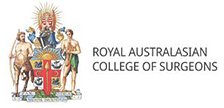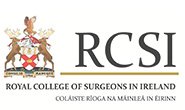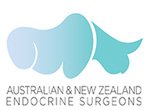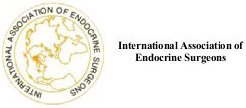Thyroid Nodules
The term thyroid nodule refers to an abnormal growth of thyroid gland cells that form a lump within the thyroid gland. A thyroid nodule can be noncancerous (benign) or cancerous (malignant) and may be filled with fluid or thyroid gland cells. Thyroid nodules occur more frequently in women than in men. The risk of developing thyroid nodules may increase as we age.
Although, only a few thyroid nodules are cancerous, certain risk factors such as a hard nodule, age older than 70 and younger than 20, hoarse voice, history of head or neck radiation exposure, being male, and family history of thyroid cancer(medullary thyroid cancer), and multiple endocrine neoplasia type II, may increase the chance for developing cancerous thyroid nodules.
The cause of most thyroid nodules is not known, but lack of iodine can cause thyroid nodules. Chronic inflammation of the thyroid (Hashimoto’s disease) that results in reduced thyroid gland activity may also cause thyroid nodules.
Epidemiology
The reported prevalence of thyroid nodules varies with the method of screening. In autopsy series, up to 50% of clinically normal thyroid glands contain nodules. A lower prevalence is found by ultrasonography. For example, nodules were found in 27% of randomly selected people aged 19–50 years in an iodine-sufficient area of Finland; only 5% of these people had a clinically detectable abnormality. Fifty per cent of people with clinically detected solitary nodules have additional nodules when studied further by ultrasonography
Reference:
- Brander A, Viikinkoski P, Nickels J, Kivisaari L. Thyroid gland: US screening in a random adult population.
Radiology 1991; 181: 683-687 - Tan GH, Gharib H, Reading CC. Solitary thyroid nodule. Comparison between palpation and ultrasonography.
Arch Intern Med 1995; 155: 2418-2423. - Emily J Mackenzie and Robin H Mortimer
Med J Aust 2004; 180 (5): 242-247
What are the Symptoms of Thyroid Nodules?
Most thyroid nodules do not cause symptoms. Often, thyroid nodules are discovered incidentally during a routine physical examination or on imaging tests like CT scans or neck ultrasound done for completely unrelated reasons. Occasionally, patients themselves find thyroid nodules by noticing a lump in their neck while looking in a mirror, buttoning their collar, or fastening a necklace. Abnormal thyroid function tests may occasionally be the reason a thyroid nodule is found. Thyroid nodules may produce excess amounts of thyroid hormone causing hyperthyroidism, however; most thyroid nodules, including those that cancerous, are actually non-functioning, meaning tests like TSH are normal. Rarely, patients with thyroid nodules may complain of pain in the neck, jaw, or ear. If a nodule is large enough to compress the windpipe or esophagus, it may cause difficulty with breathing, swallowing, or cause a “tickle in the throat”.
Assessment of Thyroid Nodules.
- History and physical examination.
- Biochemical test: thyroid function test:
- TSH: This test measures blood levels of the thyroid-stimulating hormone (TSH), which is released by your pituitary gland. This test helps to determine whether your thyroid gland is functioning normally.
- T3 & T4: thyroid hormones blood level.
- Thyroid U/S test with / without U/S guided fine needle aspiration:
- It uses sound waves to create images of your body. This test uses a lubricating gel and a transducer rubbed over the neck to look at the size and texture of the thyroid gland. This test can tell whether a nodule is a fluid-filled cyst, or a solid mass of tissue. The fine needle aspiration test is done under local anaesthetic if it’s felt necessary to distinguish between benign and malignant thyroid nodule.
- Thyroid scan: A thyroid scan is a nuclear medicine test that allows your doctor to check how well the thyroid gland is functioning. It uses a radioactive tracer and a scanner to measure how much tracer the thyroid gland absorbs from the blood.
Treatment of Thyroid nodules:
Treatment depends on the type of thyroid nodule.
Surgery:
All thyroid nodules that are found to contain a thyroid cancer, or that are highly suspicious of containing a cancer, should be removed surgically by an experienced thyroid surgeon. Most thyroid cancers are curable and rarely cause life-threatening problems.
The surgical options are:
Surveillance:
Thyroid nodules that are benign by FNA or too small to biopsy should still be watched closely with ultrasound examination every 6 to 12 months and annual physical examination by your doctor. Surgery may still be recommended even for a nodule that is benign by FNA if it continues to grow, or develops worrisome features on ultrasound over the course of follow up.







